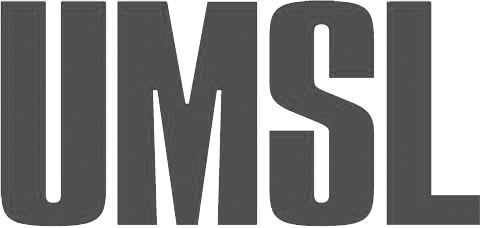By Todd Swanstrom, Des Lee Professor of Community Collaboration and Public Policy, University of Missouri St. Louis and Author of recently released Place Matters: Metropolitics for the Twenty-First Century (3rd edition); and Karl Guenther, Community Development Specialist, University of Missouri St. Louis
Todd Swanstrom
On June 9th the House of Representatives approved 2016 funding for Transportation, Housing and Urban Development (THUD; H.R. 2577). The vote was 216 to 210. Six votes decided that the National Housing Trust Fund should be de-funded and barred from receiving additional funding, Veteran Affairs Supportive Housing funds should be eliminated, Choice Neighborhoods should be cut by 75%, Community Development Block Grant (CDBG) cut $6 million, and enforcement of fair housing law weakened.
Karl Guenther
If this appropriations bill becomes law, Missouri and Illinois will lose out on millions of dollars from the National Housing Trust Fund (NHTF) that was slated to be allocated to states during 2016; St. Louis’ two Choice Neighborhoods planning efforts will have an even harder time winning implementation grants; and local HOME funds will be cut. These decreases in funding come after 10 years of cuts to CDBG and HOME funding. St. Louis County, St. Louis City, Madison County, and St. Clair County are receiving less than 50% of the CDBG and HOME funding that they received in 2003 when adjusted for inflation. Federal cuts will damage our ability to have a well-functioning community development system, unless we do something about it.
St. Louis does not have a large foundation(s), like Minneapolis, Cleveland, or Milwaukee, that invests millions of dollars each year in the infrastructure of community development. St. Louis needs a way to support the capacity of neighborhoods to engage residents, devise a vision or plan for their community, and implement that plan. This work includes hosting events that market the community and build relationships among residents, manage partnerships with social service agencies, paying for predevelopment costs such as market studies, identifying sources of gap financing, and contracting to get the work done. In the past Community Building Nonprofits did much of this nitty gritty work. Without new sources of funding the capacity of neighborhoods to do this essential work will be severely harmed.
Here are some ways we can fund a more efficient and effective community development system in St. Louis:
Dedicated Sources of Revenue: One way communities have raised funds for community development is through use taxes. Use taxes are sales taxes on items purchased out of state. Use taxes have the virtue that they level the playing field for local businesses (by charging the same sales tax on purchases out of the area) and they raise revenues without harming local taxpayers. The City of St. Louis’s Housing Trust Fund is funded by a use tax. When it generated more money than expected, however, an ordinance was passed to cap it at $5 million. Given cuts in federal funding, this cap should be lifted to at least $10 million. In 2001 St. Louis County put before the voters a Community Comeback Act that would have raised about $35 million annually to aid fiscally strapped local governments and for land assembly and economic development incentives. The Community Comeback initiative failed at the polls but in the wake of Ferguson, the need for reinvestment is clear and presents a much better chance that it would pass now. (For more information on this proposal, see http://pprc.umsl.edu/pprc.umsl.edu/data/interface_003.pdf. )
Special Taxing Districts: Where appropriate, residents and community-based organizations can work together to institute special business districts and community improvement districts that create a reliable source of funds to be reinvested within the district boundaries. Special taxing districts have helped revitalize the Grove and South Grand among other areas.
Loan Pools and Philanthropic Funds: Private sector actors from philanthropy to lenders to donors can pool and coordinate their grant and loan funds to build a stronger regional community economic development system. A proposal to this effect is being developed by the Metropolitan St. Louis Community Reinvestment Act Association, Community Builders Network of Metro St. Louis, Greater Saint Louis Community Foundation, United Way of Greater St. Louis, IFF, and others. To see their proposal on how to build a stronger regional community economic development system, click here.
If the St. Louis region does not develop new sources of funding for community development, our ability to stabilize and revitalize disadvantaged neighborhoods will wither. Ferguson should be a wake-up call: if one part of the region suffers, the entire metropolitan area is negatively affected. If we can develop local sources of funding for community development, we will be in a much better position to compete not just for federal discretionary grants but also national foundation funding.
Articles in “From the Field” represent the opinions of the author only and do not represent the views of the Community Builders Network of Metro St. Louis or the University of Missouri- St. Louis.








